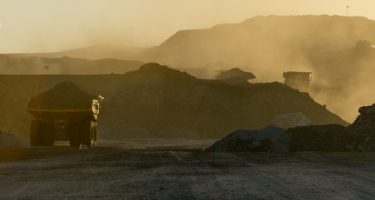While the government may seem like an impersonal bureaucratic behemoth, at its core it is just a group of human beings doing their jobs the best way they know how. Understanding the people who work at any government agency is key to understanding the agency itself. These tips can help you better understand how best to work with the Environmental Protection Agency.
1. Consider what is important to the Agency.
EPA staff are mission-driven, so try understanding their point of view. Approach the Agency with a compliance mindset.
2. Wisely use the chain of command and only strategically request meetings with senior-level decision makers.
It’s always best to try and work issues out with the appropriate staff. If that isn’t possible, first- or second-level managers can resolve many problems quickly and easily in the time that it takes to get on a more senior decision maker’s calendar. You also will likely have limited opportunities to meet with senior officials, so you should use that opportunity wisely.
When requesting management meetings, either do that through the staff or provide a courtesy notice to your staff contact. The goodwill generated by that type of communication is meaningful.
3. Respect the staff.
The staff are there because they strongly believe in environmental protection. Many of them gave up lucrative jobs to work in public service. Do not act condescendingly, and take care to respect their expertise and their time.
4. Carefully consider changes to standard model terms in enforcement documents.
It might be irritating to agree to all those model provisions in consent decrees and other enforcement documents, but typically avoid comprehensive challenges and select the terms that are most important to you. EPA is a public-service organization that looks at the impact of one decision on many other parties. Precedent is important and even minor changes to model documents can have a big impact. The agencies typically don’t agree to many of those broad requests anyway, resulting in time-consuming and ineffective negotiations. Focusing on the most important terms will yield the best results.
5. Tailor Freedom of Information Act requests to the extent possible or offer to discuss in order to tailor.
While EPA has FOIA response deadlines, vague requests will necessarily take more time.
6. Respond quickly to questions and information requests.
Failure to respond fully to a formal information request can result in penalties and an erosion of trust. If an information request is burdensome, discuss that with the Agency.
7. Make personal connections.
Develop a rapport with staff contacts. Make sure they understand why you are taking a certain position or making a request. Staff are often happy to share their knowledge and provide advice.
8. Be prepared.
Take the time to research and explain your views. Educate the staff on your business or process. Respectfully and clearly explain what’s important to you.
9. Get all the right people together.
The EPA, particularly the headquarters, is more siloed than you might think. At times, different offices may not always share information and communicate with each other even on related matters. Understand who the decision maker is and who is involved in recommending action to that decision maker.
10. Understand the culture of the office you’re working with.
Each regional and HQ office has a slightly different culture, so do some research.
11. Act with integrity.
It builds trust and helps to develop a good reputation with the Agency. Communicate clearly, openly, and honestly.
12. Be proactive if you find a violation.
The EPA’s audit policy requires, among other things, that you become compliant within 21 days of discovering a violation. If a violation is found, it’s best to proactively identify it and take the corrective actions needed before you are reported by an outside party.
13. Stay calm.
Receiving a letter demanding information—or worse yet, a hefty fine—can be frustrating, scary, and infuriating. Release those emotions and gain a cool head before talking with the Agency. Communicate clearly and be well organized and prepared.
As former Region 10 Counsel at EPA with over 30 years of insider understanding of EPA policies, Allyn Stern helps clients comply with an array of environmental statutes and regulations applicable to their businesses, including CWA and RCRA permit approvals, risk management under CAA 112(r), civil and criminal enforcement, Superfund cleanup and redevelopment, and pollution prevention strategies. She also has incident-management experience and has been in the field managing press inquiries during a high-profile oil spill response.
photo: ISTOCK.COM/FANGXIANUO






























